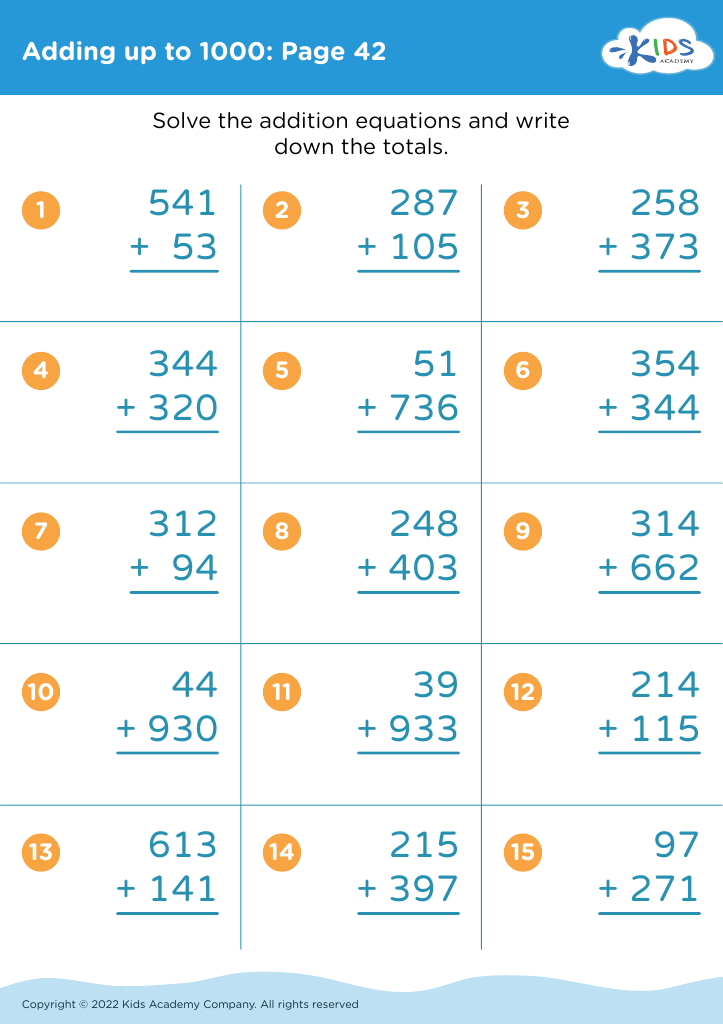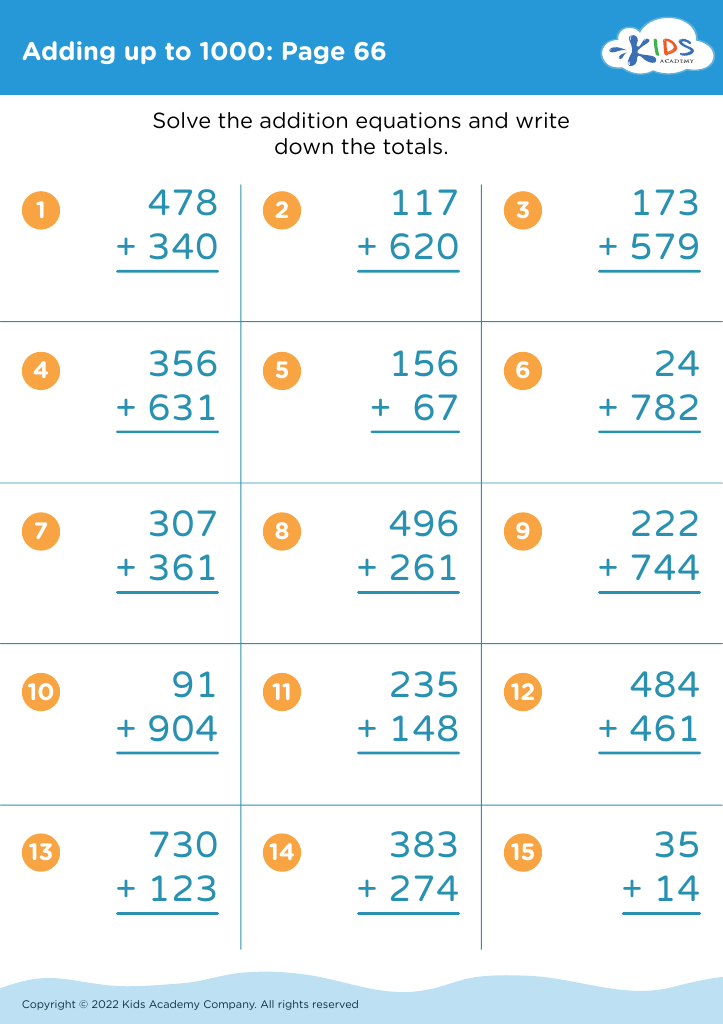Addition Practice Adding up to 1000 Misc Worksheets for Ages 3-7
5 filtered results
-
From - To
Enhance your child's math skills with our engaging "Addition Practice Adding up to 1000" worksheets, specifically designed for ages 3-7. These interactive and colorful resources make learning addition fun and accessible for young learners. With a variety of activities, including pictorial representations and number lines, children will strengthen their addition skills while building confidence in math. Our worksheets cater to different learning styles, ensuring that every child can grasp essential concepts. Ideal for both classroom and home learning, these materials will support your child's journey to mastering addition. Start boosting their skills today and watch them thrive in mathematics!
Addition practice, especially tasks focused on adding up to 1000, is vital for children aged 3-7 as it lays a strong numerical foundation for future learning. At this early age, children are naturally curious and eager to explore numbers, making it an ideal time to introduce basic mathematical concepts. Engaging in addition activities enhances cognitive development, helping children develop critical thinking and problem-solving skills.
For young learners, addition practice fosters number recognition, counting abilities, and an understanding of mathematical relationships, which are fundamental to their overall learning journey. By working with sums up to 1000, children become comfortable with larger numbers, which builds confidence and competence in their mathematical skills.
Moreover, consistent practice helps reinforce concepts through repetition, catering to different learning styles. Parents and teachers can incorporate fun, interactive methods, such as games, flashcards, or activities that align with a child’s interests, making learning enjoyable. This engagement not only supports mathematics skill development but also strengthens the parent-child or teacher-student bond.
Ultimately, fostering a positive attitude towards mathematics at an early age encourages lifelong learning and makes the transition to more complex concepts smoother, setting children on a path toward academic success.















